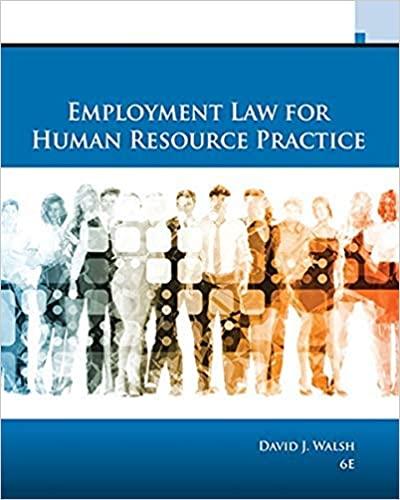A for-profit college in Florida offers an accredited program for training nurse anesthetists. The colleges owners also
Question:
A for-profit college in Florida offers an accredited program for training nurse anesthetists. The college’s owners also have ownership interests in a company that provides anesthesia services. Students in this program spend their last four semesters primarily engaged in unpaid clinical practice. Most of this clinical experience occurs at facilities operated by this one company. The state and the professional associations overseeing nurse anesthetist programs both require that students participate in substantial amounts of clinical training. Graduation from an accredited program is a requirement to sit for the board examination and to become a nurse anesthetist. Students remain registered in the program and receive course credit for their clinical work. Supervising nurse anesthetists or anesthesiologists write daily evaluations of students’ performance. Students work more than 40 hours per week and are assigned to the company’s facilities on a year-round basis. The students are identified to patients as student RNAs and wear scrubs with the college’s logo. While most of their work is supervised, they ready rooms, stock carts, prepare preoperative forms, and perform other functions without direct supervision. The extent to which the students reduce the need for other paid staff is disputed. A former office manager said that fewer paid professionals were needed because of the students, while other managers contend that the company is capable of meeting its patient safety and legal obligations with existing licensed personnel, without using the students and without incurring additional personnel costs. They also point to ways in which having to train students, including writing daily evaluations, impedes the delivery of anesthesia services. The company is reimbursed for the students’ work under a Medicare rule that allows it to bill 100 percent for two patients being treated at the same time if the certified professional is assisted by a student in each case. The students claim that they are employees entitled to proper payment under the FLSA. What should the court decide? Why? Schumann v. Collier Anesthesia, P.A., 803 F.3d 1199 (11th Cir. 2015)).
Step by Step Answer:






